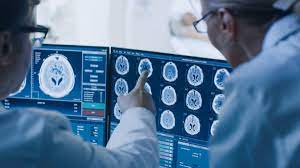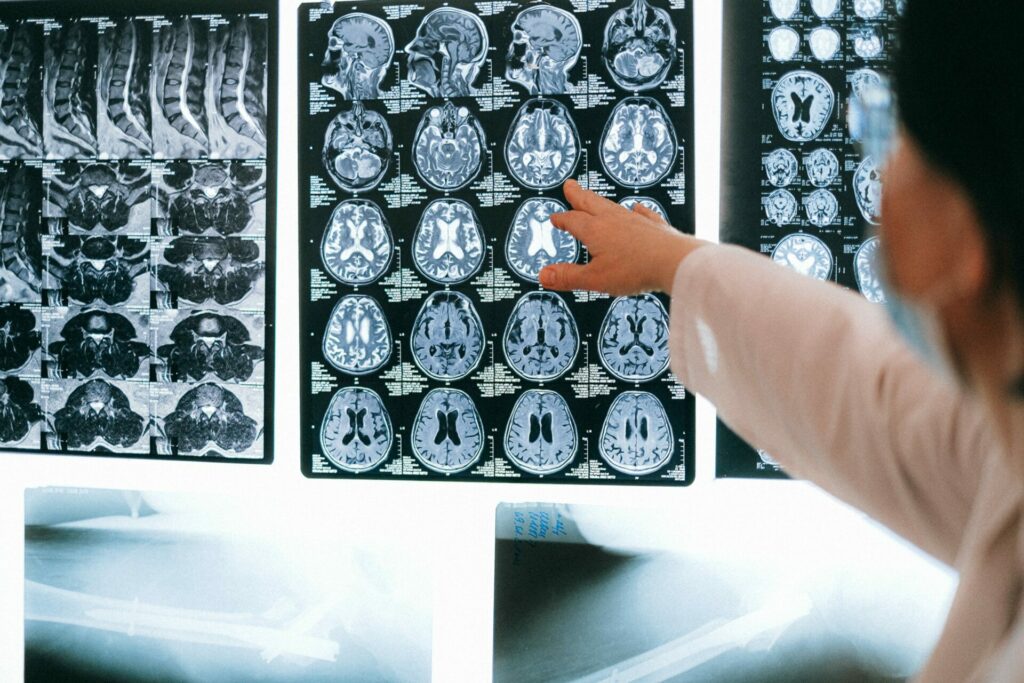Mental health challenges can be complex and difficult to manage, especially when they are caused by neurological conditions and disorders. Consulting a clinical neuropsychologist can be a valuable resource for individuals who are experiencing cognitive and emotional difficulties. In this blog, we will explore the role of clinical neuropsychologists and the benefits of seeking their help. We will also discuss the approaches they use, their major areas of expertise, and how to find the right one for you.
Contents
Who Is A Clinical Neuropsychologist?
 A clinical neuropsychologist is a licensed psychologist with specialized training in the relationship between brain function and behavior. They use various assessment tools to evaluate cognitive and emotional functioning in individuals who have experienced neurological conditions, such as traumatic brain injury, stroke, dementia, or other conditions affecting the brain.
A clinical neuropsychologist is a licensed psychologist with specialized training in the relationship between brain function and behavior. They use various assessment tools to evaluate cognitive and emotional functioning in individuals who have experienced neurological conditions, such as traumatic brain injury, stroke, dementia, or other conditions affecting the brain.
When To Seek A Clinical Neuropsychologist?
Here are some situations when it may be appropriate to seek the services of a clinical neuropsychologist:
- If following a traumatic brain injury or concussion.
- If there are persistent symptoms such as headaches, difficulty concentrating, or changes in mood or behavior.
- After a stroke or other neurological event that affects cognitive function. Such as memory loss or difficulty with speech or language.
- Concerns about changes in cognitive function or behavior in an aging loved one. Such as forgetfulness or confusion.
- For Children or adolescents struggling with learning or behavioral issues. Particularly, if there is a suspected underlying neurological condition such as ADHD or a learning disability.
- When preparing for or following medical treatment for a brain tumor, epilepsy, or other neurological condition that could impact cognitive function.
- In legal cases involving brain injury. Such as personal injury or workers’ compensation claims, to assess the extent of any impairment and provide expert testimony if needed.
Approaches Used By A Clinical Neuropsychologist
A clinical neuropsychologist may use a variety of approaches and techniques to assess and treat individuals. Here are some of them:
Neuropsychological assessment
Neuropsychological assessment is a comprehensive evaluation of an individual’s cognitive and emotional functioning. It is often the first step in diagnosis and treatment planning. The assessment may involve a variety of tests. Such as memory tests, attention tests, language tests, and tests of executive function. The results of this assessment can help identify areas of cognitive impairment and inform treatment planning. It can also be used to track changes in cognitive functioning over time.
Psychotherapy
 Clinical neuropsychologists may provide psychotherapy to help individuals cope with emotional and behavioral issues related to their neurological condition. For example, someone with a traumatic brain injury may experience depression or anxiety, and therapy can help them learn coping skills and manage their emotions. Therapy may be provided individually or in a group setting, and may use a variety of evidence-based approaches.
Clinical neuropsychologists may provide psychotherapy to help individuals cope with emotional and behavioral issues related to their neurological condition. For example, someone with a traumatic brain injury may experience depression or anxiety, and therapy can help them learn coping skills and manage their emotions. Therapy may be provided individually or in a group setting, and may use a variety of evidence-based approaches.
Cognitive rehabilitation
Cognitive rehabilitation involves developing personalized strategies and exercises to help individuals compensate for cognitive deficits and improve functioning in daily life. For example, someone with memory impairment may learn memory aids and techniques to help them remember important information, or someone with executive dysfunction may learn organizational skills to help them manage their daily tasks. Cognitive rehabilitation can be provided individually or in a group setting and may be done in a clinical setting or the individual’s home environment.
Consultation and Collaboration
Clinical neuropsychologists often work closely with other healthcare providers to ensure a comprehensive approach to treatment. This may involve consulting with a neurologist to help diagnose a neurological condition, and collaborating with a rehabilitation specialist to develop a comprehensive treatment plan. The clinical neuropsychologist may also work with schools or employers to ensure that the individual’s needs are accommodated.
Education and Advocacy
Clinical neuropsychologists may provide education and support to individuals and their families. Moreover, they can advocate for their needs within the healthcare system and the broader community. This may involve providing information about the insurance for an individual’s condition. They may also work to raise awareness of neurological conditions for improved access to care and support services.
Major Areas Of Expertise
Here are some of the major areas of expertise of clinical neuropsychologists:
- Neuroanatomy and neurophysiology: Clinical neuropsychologists have a deep understanding of the structure and function of the brain, including knowledge of the different regions of the brain and their roles in various cognitive and emotional processes. They are also knowledgeable about how brain activity can be measured and studied, such as through techniques like EEG, fMRI, and PET scans.
- Neurological conditions and disorders: Clinical neuropsychologists have expertise in a range of neurological conditions and disorders, such as traumatic brain injury, stroke, dementia, Parkinson’s disease, multiple sclerosis, and epilepsy. They understand how these conditions can impact cognitive and emotional functioning and are trained to develop treatment plans that address these specific issues.
- Mental health and emotional well-being: Clinical neuropsychologists also have expertise in how neurological conditions can impact mental health and emotional well-being. They are trained to provide therapy and support to individuals who may be struggling with depression, anxiety, or other emotional issues as a result of their neurological condition.
Benefits Of Clinical Neuropsychologists
 There are several benefits of working with a clinical neuropsychologist:
There are several benefits of working with a clinical neuropsychologist:
- Accurate diagnosis: Clinical neuropsychologists use a variety of neuropsychological tests and assessments to develop an accurate diagnosis. This can help individuals and their healthcare providers understand the nature of their condition, and develop an appropriate treatment plan.
- Personalized treatment: They work closely with individuals to develop personalized treatment plans that address their specific needs and challenges.
- Improved functioning: They can help individuals improve their cognitive and emotional functioning and regain lost skills. This can lead to improved quality of life and greater independence in daily activities.
- Advocacy and support: Clinical neuropsychologists can act as advocates. This helps to communicate effectively with other healthcare providers and navigate the healthcare system. They can also provide support and guidance to family members and caregivers.
Qualities To Look For Before Choosing
When choosing a clinical neuropsychologist, it’s important to look for the following qualities:
- Qualifications and experience: Look for a clinical neuropsychologist who has the appropriate qualifications and certifications to treat neurological conditions and disorders. Make sure that they have good experience as well.
- Empathy and compassion: Look for a clinical neuropsychologist who is empathetic and compassionate, and who takes the time to understand your unique situation and challenges. They should be able to provide emotional support and guidance and be sensitive to your needs and concerns.
- Effective communication skills: Look for a clinical neuropsychologist who has strong communication skills. Additionally, look for one who can explain complex concepts and findings clearly and understandably. They should be able to listen actively to your concerns and questions and be responsive to your needs.
- Patient-centered approach: Look for a clinical neuropsychologist who takes a patient-centered approach to care. Or, the one who is focused on your individual needs and goals. They should be willing to work collaboratively with you and your healthcare team.
- Professionalism and ethics: Look for a clinical neuropsychologist who demonstrates professionalism and adherence to ethical standards. They should be licensed and keep patients’ information confidential.
How To Find A Clinical Neuropsychologist?
 Here are some steps to find a clinical neuropsychologist:
Here are some steps to find a clinical neuropsychologist:
- Referrals: Ask your primary care physician, neurologist, or other healthcare providers for a referral to a clinical neuropsychologist.
- Insurance company: Check with your insurance company to see if they have a list of in-network clinical neuropsychologists in your area.
- Search online: Use online search engines to look for clinical neuropsychologists in your area. Read reviews and ratings to get an idea of their reputation and the quality of their services.
- Recommendations: Ask your friends, family, or relatives. They may be able to recommend you a good neuropsychologist.
Conclusion
In Conclusion, Clinical neuropsychologists are professionals who specialize in assessing, diagnosing, and treating neurological conditions and disorders. They use a variety of approaches to evaluate cognitive and emotional functioning, develop personalized treatment plans, and support individuals and their families throughout the process. If you or a loved one is experiencing cognitive or emotional difficulties as a result of a neurological condition or disorder, seek help from a qualified clinical neuropsychologist to receive the support and care you need.
For more information, please contact MantraCare. A psychologist is a professional who specializes in the study of human behavior and mental processes. If you have any queries regarding Online Therapist experienced therapists at MantraCare can help: Book a trial therapy session.


